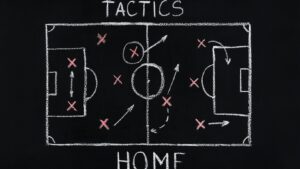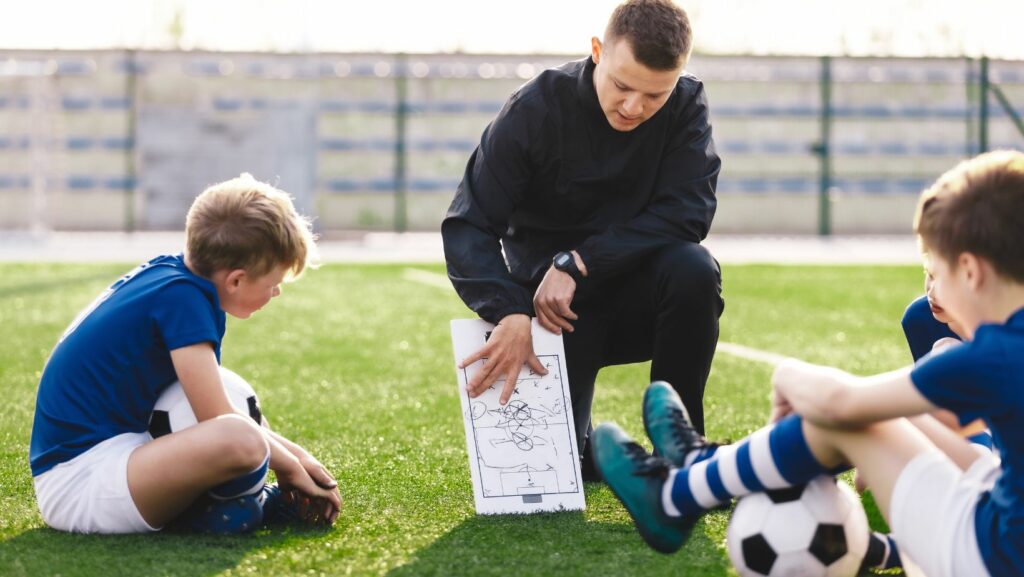Stepping onto the battlefield of life, we’re often armed with strategies. Yet, it’s the smaller, more agile tactics that truly turn the tide. Tactics, the unsung heroes of our daily battles, are the practical steps we take to achieve our grand strategies. But what exactly are they, and how do they shape our lives and decisions?
In the world of business, sports, or even personal growth, tactics are the secret sauce that spices up our success journey. They’re the chess moves we make, the paths we tread, and the decisions we take in the heat of the moment. Let’s delve deeper into the world of tactics, exploring their essence, their role, and their impact on our lives.
What are Tactics
Tactics in Military Operations
 In military operations, tactics serve as the backbone of conflict management and resolution. They guide troops’ actions on the battlefield, including how they move, defend, and attack. To illustrate, consider flanking, a military maneuver that involves attacking the enemy’s side. This tactic aims to divide the opponent’s attention, increasing the possibility of victory.
In military operations, tactics serve as the backbone of conflict management and resolution. They guide troops’ actions on the battlefield, including how they move, defend, and attack. To illustrate, consider flanking, a military maneuver that involves attacking the enemy’s side. This tactic aims to divide the opponent’s attention, increasing the possibility of victory.
Tactics in Sports
Quick thinking and strategic methods also find a prominent place in the realm of sports. Athletes and coaches employ a profusion of tactics to gain a competitive advantage, such as utilizing zone defense in basketball. In this tactic, each player defends a specific zone on the court instead of marking an opponent. The intended result is a more robust defense system, better equipped to intercept passes and block shots.
Tactics in Business
Tactics bear considerable relevance in the business world as well. They translate strategies into actionable steps, directing the day-to-day operations of a company. For instance, consider a business using price skimming – a tactic where a high initial price is set for a product, which is gradually reduced over time. Leveraging this tactic can help a company recoup its investment quickly, particularly in markets susceptible to new products or services.
The Fundamental Principles of Tactical Thinking
Flexibility and Adaptability
 A cornerstone of tactical thinking remains flexibility and adaptability. Rigidity in tactics often leads to undesirable outcomes. It’s why adaptability serves as a vital asset, ensuring that an individual or group can adjust in response to changing circumstances.
A cornerstone of tactical thinking remains flexibility and adaptability. Rigidity in tactics often leads to undesirable outcomes. It’s why adaptability serves as a vital asset, ensuring that an individual or group can adjust in response to changing circumstances.
At its core, flexibility involves capacity for change. In a military operation, for instance, if the enemy adapts their formation, the effective troop will modify their approach. A successful business adapts its marketing strategy based on market trends, just as a basketball player alters his or her defensive approach according to the opponent’s offensive strategy.
The Importance of Speed and Timing
Secondly, tactical thinking emphasizes the significance of speed and timing. Reactive tactics lack efficacy if deployed delayingly. A swift response can often differentiate success from failure.
In military and sports scenarios, attacks are often timed perfectly to catch the opposition off guard. A quick, coordinated strike can disrupt enemy lines or break through a tight defense. Similarly, in business, the timing of a product launch can determine market reception, with an untimely unveiling possibly leading to a lackluster response.
How to Develop Tactical Skills
Training and Practice
 An essential element in developing tactical skills revolves around consistent training and practice. Tactical training elevates the ability to make timely and effective decisions. For instance, in sports like football or basketball, athletes frequently practice drills, enhancing their tactical skills for on-field decision making.
An essential element in developing tactical skills revolves around consistent training and practice. Tactical training elevates the ability to make timely and effective decisions. For instance, in sports like football or basketball, athletes frequently practice drills, enhancing their tactical skills for on-field decision making.
In business, practical exercises could vary from conflict resolution role-plays to decision-making workshops. Fundamentally, training provides a safe space to make mistakes, learn, and ultimately grow, thereby equipping individuals with robust tactical skills.
Learning from Historical Examples
Another fruitful way to develop tactical skills encompasses learning from historical events and examples. In military tactics, studying past battles can reveal successful strategies and the associated tactical decisions that led to victory. Armchair generals often dissect historical events like the Battle of Waterloo or Normandy’s D-Day operations to extract key tactical insights.
In a business context, reputation management tactics employed by corporations during public relations crises can serve as learning platforms. For instance, how a multinational company handled an extensive product recall may provide valuable lessons about crisis management tactics.

